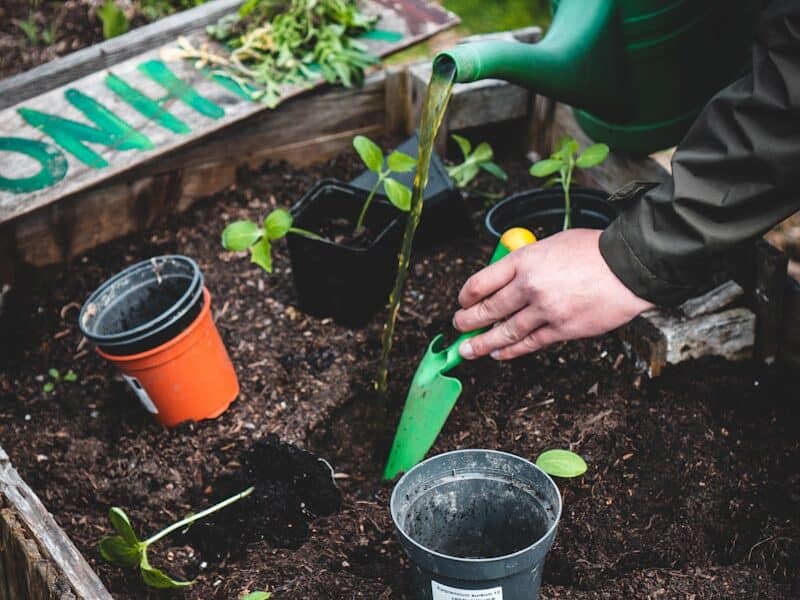In every home, there are potential hazards lurking around the corner. From slippery floors to toxic substances, being aware of these dangers is crucial for maintaining a safe environment for you and your loved ones.

In this article, we will highlight seven common household hazards and provide practical tips on how to avoid them, ensuring a safer living space.
Slips and Falls
Slips and falls are among the leading causes of unintentional injuries worldwide. In homes, they often occur due to slippery floors, loose rugs, or cluttered pathways. One effective way to prevent such accidents is by ensuring that floors are kept dry at all times. This is especially true for areas that are prone to spills like the kitchen and bathroom.
Using non-slip mats or rugs and securing them with double-sided tape can provide additional traction and stability, reducing the risk of slipping. It’s also essential to keep walkways clear of obstacles and clutter to prevent tripping hazards, particularly in high-traffic areas.
Regularly inspecting flooring for any signs of wear and tear and promptly addressing any issues can also help minimize the risk of falls. By taking these simple precautions, you can significantly reduce the likelihood of slip and fall accidents in your home.
Poisonous Substances
Many common household items, including cleaning products, medications, and certain plants, can be toxic if ingested or even inhaled or touched. As noted by Better Homes & Gardens, the drought-tolerant ZZ plant is popular in homes and offices. However, all parts of this plant are poisonous. Other plants that are poisonous include Easter Lily and Philodendron.
Children and pets are especially vulnerable to accidental poisoning, making it crucial to store these items safely out of their reach.
Cabinet locks or childproof latches can help prevent curious little hands from accessing harmful substances. Additionally, always store chemicals in their original containers with clearly labeled instructions, and never transfer them to food or drink containers. This can lead to confusion and accidental ingestion.
Be mindful of potential toxins in the yard as well, such as pesticides, and keep them securely stored away from children and pets. Educating family members about the dangers of poisonous substances and how to respond in case of an emergency can also help avoid accidental poisoning.

Fire Hazards
Household fires can be devastating, causing property damage, injuries, and even fatalities. Many fires are caused by electrical faults, overloaded sockets, or unattended candles. Regularly inspecting electrical appliances, cords, and outlets for any signs of damage or wear can help prevent electrical fires.
Avoid overloading sockets with too many appliances and use power strips with built-in surge protectors for added safety. When using candles, never leave them burning unattended, and keep them away from flammable materials like curtains or paper. Investing in smoke detectors for every level of your home and testing them regularly can provide early warnings in the event of a fire.
Creating and practicing a fire escape plan with designated meeting points can also help ensure everyone knows what to do in an emergency. By taking these preventive measures, you can significantly reduce the risk of household fires and protect your loved ones and property.
Carbon Monoxide
Carbon monoxide is a silent killer, as it is odorless and colorless, making it difficult to detect without proper monitoring equipment. The CDC notes that at least 420 Americans die from accidental carbon monoxide poisoning every year. Fuel-burning appliances such as gas stoves, furnaces, and water heaters can produce carbon monoxide if not properly ventilated or maintained.
Installing carbon monoxide detectors on every level of your home, especially near sleeping areas, can provide early warnings of dangerous levels of carbon monoxide. It’s essential to test these detectors regularly and replace the batteries as needed to ensure they are functioning correctly.
Additionally, having your fuel-burning appliances inspected and serviced annually by a qualified technician can help identify and address any potential carbon monoxide leaks.
Proper ventilation is also crucial in preventing the buildup of carbon monoxide indoors. Ensure that all vents and chimneys are clear of obstructions and operating efficiently. By being vigilant and taking these precautions, you can protect your family from the dangers of carbon monoxide poisoning.
Sharp Objects
Sharp objects such as kitchen knives, scissors, and gardening tools can cause serious injuries if not handled with care. To prevent accidents, store these items securely in designated areas out of reach of children. Using safety locks or latches on drawers or cabinets containing sharp objects can further reduce the risk of accidental injuries.
When using sharp tools or knives, always cut away from your body and keep your fingers clear of the blade’s path. Teach children proper knife safety and supervise them closely when they are handling sharp objects.
Additionally, keeping knives and scissors sharp can actually reduce the risk of accidents, as dull blades are more likely to slip and cause injuries. By practicing safe handling techniques and teaching household members about the potential dangers of sharp objects, you can minimize the risk of accidents.
Pressure Cooker Accidents
Pressure cookers are popular kitchen appliances known for their ability to cook food quickly and efficiently. However, they can also pose safety risks if not used properly. One common hazard is the risk of explosion due to improper sealing or overfilling of the cooker. To prevent accidents, always follow the manufacturer’s instructions for proper use and maintenance of your pressure cooker.
Ensure that the sealing ring is in good condition and properly seated before each use, and never fill the cooker beyond its recommended capacity. It’s also essential to release pressure carefully according to the cooker’s instructions to avoid steam burns.
TorHoerman Law notes that in recent years, there have been reports of pressure cooker explosions leading to lawsuits against manufacturers. These incidents often result in severe injuries, including burns and lacerations, prompting victims to seek compensation for medical expenses and other damages.
Witnessing an Instant Pot explode can be a traumatic experience, highlighting the importance of understanding proper usage and maintenance guidelines. Manufacturers may be held liable for design flaws or manufacturing defects that contribute to accidents, emphasizing the need for consumers to stay vigilant.
Drowning
Drowning is a leading cause of unintentional death worldwide, with young children being particularly vulnerable. In homes with pools, bathtubs, or even buckets of water, drowning accidents can occur if proper precautions are not taken. According to the Consumer Product Safety Commission, about 90 children drown to death in American households each year.
Installing barriers such as fences with self-closing gates around pools can help prevent unsupervised access and reduce the risk of drowning incidents.
Never leave young children unattended near water, even for a moment, and always empty buckets, tubs, and other containers immediately after use. It’s also essential to teach children water safety skills from a young age. This includes how to float and swim, and to emphasize the importance of never entering the water without adult supervision.
When hosting gatherings or parties near water, designate a responsible adult to act as a lifeguard and supervise children at all times. By being vigilant and implementing these safety measures, you can help prevent drowning accidents and keep your family safe around water.
FAQs
What causes carbon monoxide in a house?
Carbon monoxide can be produced in a house by fuel-burning appliances such as gas stoves, furnaces, water heaters, and fireplaces. Improperly ventilated or malfunctioning appliances can lead to the buildup of carbon monoxide gas, posing a serious health hazard.
How do I make sure my pressure cooker doesn’t explode?
To prevent a pressure cooker from exploding, follow manufacturer instructions closely, never overfill it, and ensure the sealing ring is intact. Release pressure carefully according to instructions, pointing the steam release valve away from yourself and others.
What household items are a fire hazard?
Common household items that pose fire hazards include overloaded electrical sockets, unattended candles, and faulty wiring. Appliances like stoves, heaters, and dryers can also be potential fire risks if not properly maintained.
In conclusion, ensuring a safe home environment requires proactive measures against slips, toxins, fires, carbon monoxide, sharp objects, pressure cooker mishaps, and drowning.
By implementing preventative steps like keeping floors dry, storing chemicals properly, and following safety protocols, households can significantly reduce the risk of accidents.
Vigilance, education, and regular maintenance are key in safeguarding against these hazards. Remember, a safe home fosters peace of mind and well-being for all occupants, making it imperative to prioritize safety measures at all times.


